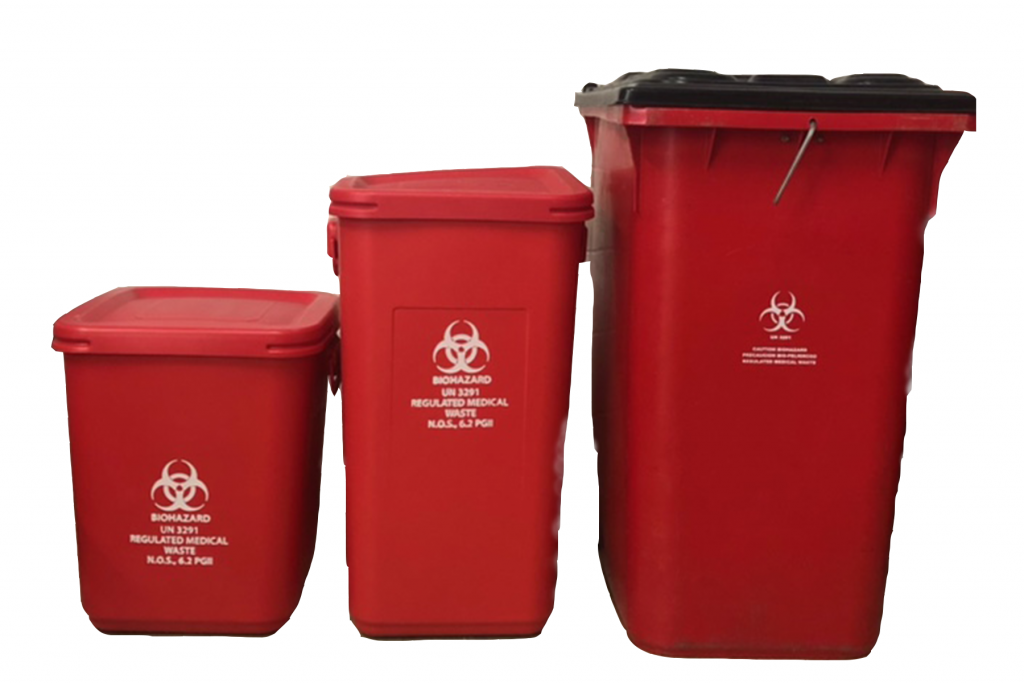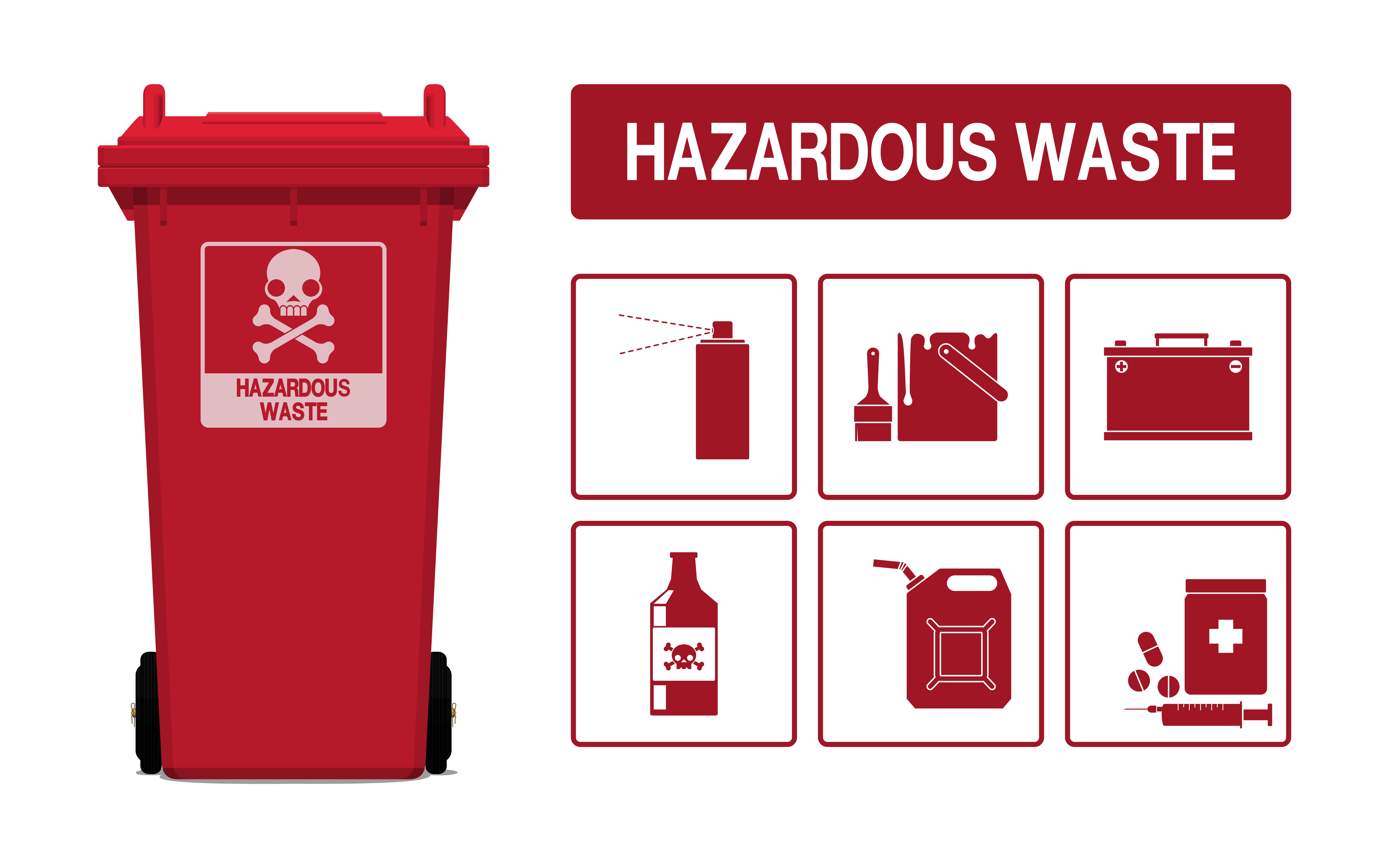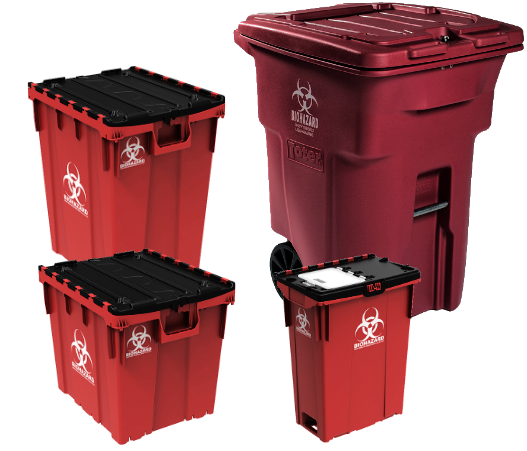Shielding Health And Wellness: Specialist Medical Waste Removal Services for a Clean Environment
Shielding Health And Wellness: Specialist Medical Waste Removal Services for a Clean Environment
Blog Article
Efficient and Ecologically Friendly Medical Garbage Disposal Solutions
In the ever-evolving field of medical care, the issue of medical waste disposal continues to be a topic of critical relevance. As medical facilities, centers, and various other medical care facilities aim to give quality individual treatment, they must also attend to the obstacle of successfully and responsibly disposing of their waste.
Waste Segregation Practices
Effective waste partition methods are important to make sure the proper and secure disposal of medical waste. Clinical waste, which consists of materials polluted with potentially transmittable compounds, need to be managed in a method that minimizes the threat of damage to both public wellness and the setting. Proper waste segregation plays a crucial role in achieving this objective.
Waste partition entails the splitting up of various types of waste based upon their attributes and prospective dangers. This procedure makes certain that each sort of waste is treated and dealt with suitably (medical waste disposal services with WasteX). It begins at the point of generation, where medical care facilities should have assigned bins and containers for various waste classifications, such as sharps, contagious waste, pharmaceutical waste, and non-hazardous waste
By setting apart clinical waste at the source, doctor can protect against cross-contamination and decrease the danger of direct exposure to infectious agents. This technique likewise facilitates the recycling and healing of certain materials. Setting apart and recycling tidy plastics and glass reduces the demand for raw products and minimizes the environmental impact of medical waste disposal.

Autoclaving and Sanitation Strategies
In order to ensure the risk-free and appropriate disposal of clinical waste adhering to reliable waste partition techniques, medical care centers need to utilize autoclaving and sterilization methods. Autoclaving is a commonly utilized technique that uses high-pressure heavy steam to disinfect clinical waste. This process includes placing the waste in a chamber and subjecting it to a combination of heat and pressure, which effectively eliminates microbes and provides the waste risk-free for disposal. Autoclaving is especially efficient in sanitizing products such as surgical tools, research laboratory tools, and specific kinds of medical waste that can withstand high temperatures. medical waste disposal services with WasteX.
Another typically made use of sterilization strategy is chemical sterilization. This includes dealing with the waste with chemicals such as ethylene oxide or hydrogen peroxide, which kill bacteria by interrupting their cellular structure. Chemical sanitation is frequently utilized for heat-sensitive things or materials that can not endure the heats of autoclaving. It is essential to keep in mind that chemical sanitation calls for correct handling and disposal of the chemicals used, as they can be dangerous to human health and wellness and the atmosphere if not taken care of appropriately.
On-Site Waste Therapy Equipments
Medical care centers have actually applied on-site waste therapy systems to resolve the disposal of clinical waste in a risk-free and reliable way. These systems offer a affordable and practical service for managing clinical waste created within the center. On-site waste treatment systems utilize various modern technologies to deal with and dispose of clinical waste on-site, lessening the requirement for transportation to off-site centers.
One frequently made use of on-site waste therapy system is the microwave technology. An additional system is the chemical sanitation modern technology, which entails dealing with medical waste with chemicals to eliminate microorganisms and lower its harmful nature. medical waste disposal services with WasteX.
They get rid of the risk of medical waste being messed up throughout transportation, reducing the possibility for contamination and exposure to harmful compounds. On-site therapy systems decrease the general ecological influence of medical waste by minimizing transport and the need for garbage dump area.
Recycling and Repurposing Campaigns
As healthcare facilities pursue lasting waste administration practices, they are increasingly exploring recycling and repurposing initiatives as a way of lowering the ecological impact of clinical waste. Reusing and repurposing efforts involve finding innovative ways to recycle or change medical waste into new items or products. This not only helps to minimize the quantity of waste that winds up in burners or land fills but also reduces the usage of raw products and energy needed for making new products.
One example of reusing in the medical care field is the reprocessing of single-use medical tools. This not just minimizes the amount of waste created however additionally conserves medical care facilities substantial costs associated with buying new gadgets.
An additional recycling campaign entails the recycling of plastic containers, such as medication bottles or syringe housings. These containers can be gathered, arranged, and sent out to recycling centers where they are refined, melted down, and transformed into brand-new plastic items. This helps to save sources and lower the demand for virgin plastic production.
Along with reusing, repurposing campaigns involve finding alternate usages for clinical waste. Shredded paper waste from medical records or product packaging materials can be repurposed as bedding material for animals or as insulation material. Likewise, organic waste such as food scraps from health care facilities can be composted and utilized as fertilizer in gardens or agricultural fields.

Renewable Power Solutions
One reliable strategy to minimizing the ecological effect of health care operations involves implementing renewable power remedies. Medical care facilities, such as centers and medical facilities, consume substantial quantities of look at here now energy for various objectives, including illumination, heating, cooling, and operating medical equipment. By transitioning to renewable resource resources, these centers can substantially decrease their carbon footprint and add to a much more sustainable future.

Implementing renewable resource remedies in healthcare facilities not only minimizes greenhouse gas exhausts but also provides lasting expense savings. While the initial investment in eco-friendly power framework might be higher, the long-term operational costs of renewable resource systems are substantially reduced contrasted to typical fossil fuel-based power resources. In addition, eco-friendly power systems are reliable and can offer a undisturbed and steady power supply, making sure continuous medical care solutions even throughout power failures or emergencies.
Verdict
In conclusion, applying ecologically pleasant and efficient clinical waste disposal services is crucial for preserving a lasting health care system. By taking on waste segregation techniques, autoclaving and sterilization methods, on-site waste therapy systems, recycling and repurposing campaigns, and renewable power solutions, health care centers can considerably minimize their environmental effect.
It begins at the factor of generation, where health care centers should have assigned containers and containers for various waste categories, such as sharps, contagious waste, pharmaceutical waste, and non-hazardous waste.
In order to make certain the safe and appropriate disposal of medical waste adhering to reliable waste segregation methods, health care centers must utilize autoclaving and sanitation strategies.Medical care facilities have executed on-site waste therapy systems to resolve the disposal of clinical waste in a efficient and secure way. On-site waste therapy systems make use of numerous technologies to treat and dispose of medical waste on-site, reducing the need for transport to off-site centers.
As medical care centers aim for lasting important site waste monitoring practices, they are progressively checking out recycling and repurposing efforts as a way of lowering the ecological influence of clinical waste. - medical waste removal near me
Report this page